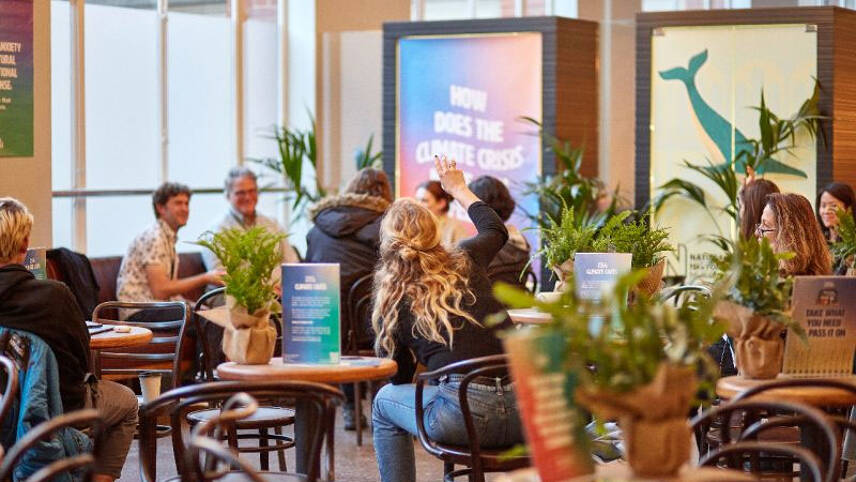Register for free and continue reading
Join our growing army of changemakers and get unlimited access to our premium content

Image: Force of Nature
With one month left before COP28 takes place in Dubai this year, Force of Nature is aiming to provide support to the general public, especially young people, in fostering conversations about the climate crisis.
This initiative will encourage individuals to share their personal experiences and discuss the necessary actions to address the climate crisis.
The non-profit launched its climate café programme before COP27 last year, aiming to encourage local communities to engage in discussions about climate-related issues.
Since then, more than 190 individuals have hosted climate cafés in 49 countries from Kampala, Uganda to Canterbury, England.
This year, the green group will run the event with support from Ecosia and the Climate Crisis Advisory Group.
The non-profit has created a free and easily accessible guide on how to host a climate café. This guide is based on years of experience in eco-anxiety research and facilitating climate discussions.
It aims to enable hundreds more people to create safe and inclusive community spaces for conversations and action regarding the climate crisis.
According to research conducted by Force of Nature, 70% of young people express feelings of hopelessness regarding the climate crisis.
Nevertheless, hosts and attendees of the climate café programme have reported feeling motivated, empowered and more optimistic about the future of planet Earth.
Climate Café from COP27
Last year, the UK’s National History Museum hosted a climate café as part of the Force of Nature’s programme. In a podcast episode, edie’s deputy editor Sarah George sat down to speak with the Force of Nature’s founder Clover Hogan.


Please login or Register to leave a comment.